A fragment of a cave lion figurine estimated to be 45,000 years old was unearthed in Siberia’s Denisova Cave
A fragment of a cave lion figurine estimated to be 45,000 years old was unearthed in Siberia’s Denisova Cave by researchers led by Mikhail Shunkov of the Novosibirsk Institute of Archaeology and Ethnography.
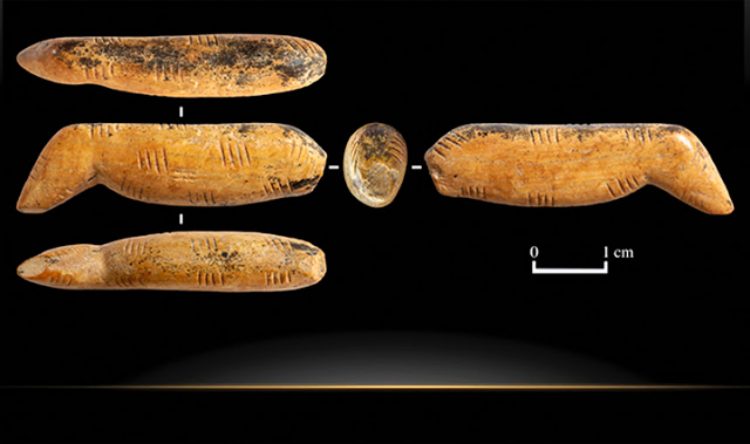
The precious small - 42mm long, 8mm thick and 11mm high - figurine of a cave lion (Panthera spelaea, lat) was made by an Upper Palaeolithic artist between 40,000 and 45,000 years ago. It was found inside the 11th layer of the southern gallery of the Denisova Cave.
This is the oldest sculptural zoomorphic image ever found in Siberia and throughout the territory of Northern and Central Asia.
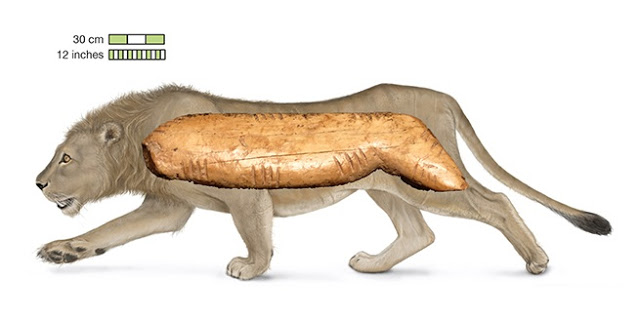
The precise age is yet to be confirmed, but the cautious dating given by Siberian archaeologists means that this might be the oldest animal figurine in the world.
The lion’s head is missing, what we see is its hind legs, groin, back and belly, covered in an ornament of eighteen rows of nothes. There are two extra rows with four notches on the lion’s right side.
‘The figurine depicts an animal with its tummy tucked in, its hind legs bent. It is either galloping, jumping or getting ready to jump. The animal is shown in a typical for big cats position for the moment when they are ready to catch a prey’, said Mikhail Shunkov, head of the Institute’s Stone Age Archaeology Department.
The mammoth ivory for the statuette was delivered from quite a distance away, Russian scientists say. It had to be carried for at least 100 kilometres from the northern footsteps of the Altai Mountains.
After finishing the figurine, the cave artist used red ochre to paint it.
So far traces of it were found mostly around the stomach area - which even led to an idea that it could be symbolising a bleeding wound - but researcher Alexander Fedorchenko believes that most likely the whole animal was painted red.
Remains of ocher were found only in the southern gallery of the Denisova cave.
Source: The Siberian Times


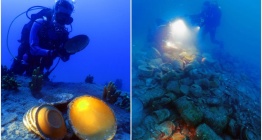
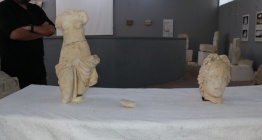
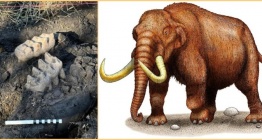


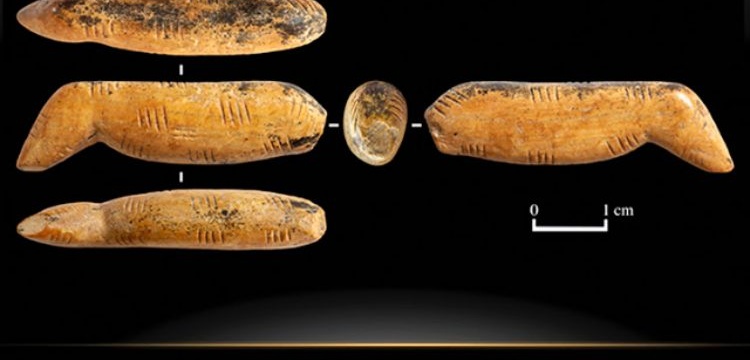
 Bir Sapiens kafilesi Avrupa'ya buz çağında ulaştı, soğuğa direndi ama soyunu sürdüremedi
Bir Sapiens kafilesi Avrupa'ya buz çağında ulaştı, soğuğa direndi ama soyunu sürdüremedi 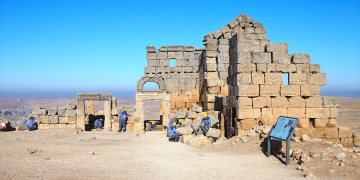 Prof. Dr. Aytaç Coşkun: Zerzevan Kalesi'nin altında bir yeraltı kenti var
Prof. Dr. Aytaç Coşkun: Zerzevan Kalesi'nin altında bir yeraltı kenti var  Arkeologlar 4 Bin yıl önce salyangozların ne amaçla toplandığını çözmeye çalışıyor
Arkeologlar 4 Bin yıl önce salyangozların ne amaçla toplandığını çözmeye çalışıyor  Binbeşyüz yıl önce Balıkesir'de batan tabak yüklü geminin batığı bulundu
Binbeşyüz yıl önce Balıkesir'de batan tabak yüklü geminin batığı bulundu 




